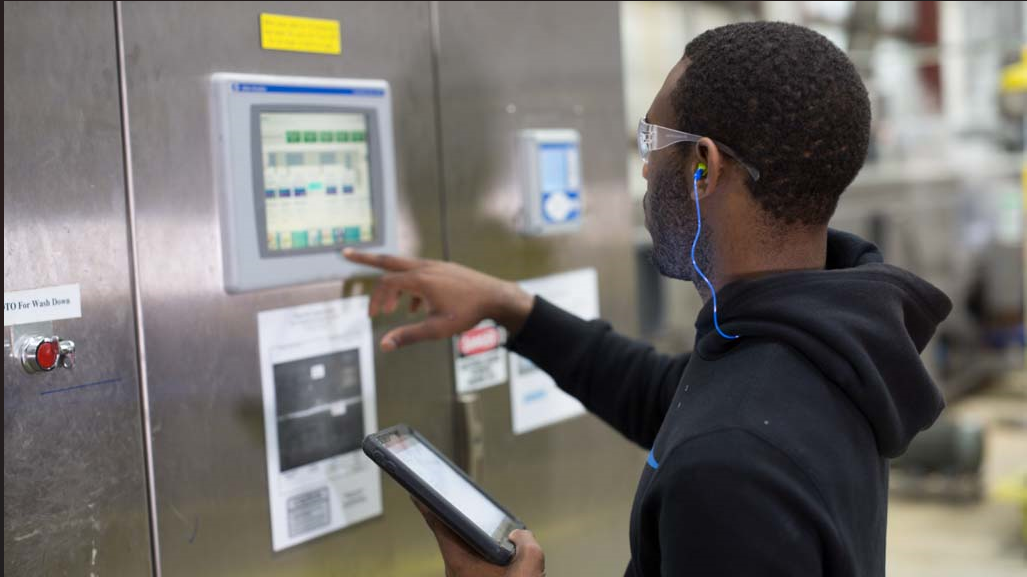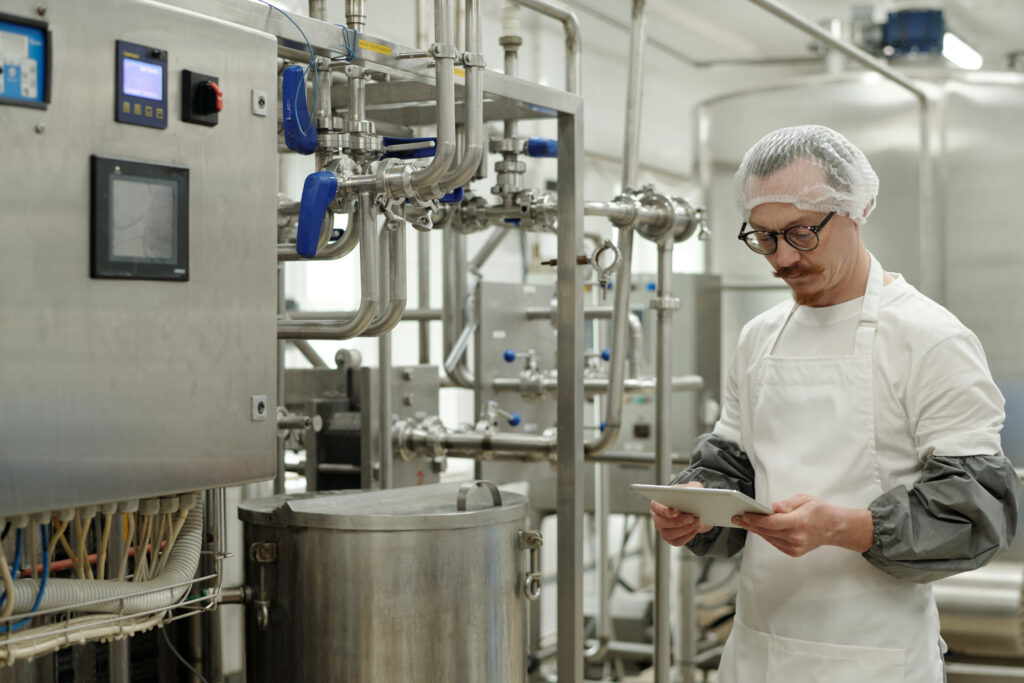Surpassing the standards: Why reusable plastic pallets are a superior alternative to heat-treated wooden pallets

In this article
In the world of logistics and supply chain management, pallets are a vital component. Traditionally, wooden pallets have been the go-to choice for many businesses, with some selecting heat-treated pallets to meet stricter hygiene requirements.
Now that businesses are looking to prioritise hygiene, standardisation, durability, sustainability, and cost-effectiveness, reusable plastic pallets stand out as a far more attractive and credible alternative.
Below is a breakdown of the numerous benefits that reusable plastic pallets have over heat-treated wooden pallets.
Costs of Non-compliance – Unlock Transport Efficiencies
The most obvious benefit of opting for reusable plastic pallets is their exemption from International Standards For Phytosanitary Measures No. 15 (ISPM 15) regulations. This set of rules has been developed to reduce the risk of introducing and spreading quarantine pests associated with the international trade of wooden packaging materials.
Unlike wooden pallets, plastic pallets are not subject to these regulations due to their non-organic nature, which eliminates the risk of pest infestation. This exemption simplifies cross-border transactions significantly, as businesses using plastic pallets are not required to undertake the time-consuming and costly process of pallet heat-treatment and certification mandated by ISPM 15.
Given that shipments may be inspected at the border with the EU to ensure compliance, there can be delays when using heat-treated wooden pallets and of course, any non-compliant pallets are at risk of being quarantined, treated, returned, or even destroyed at the owner’s expense.
Consequently, plastic pallets streamline the logistics process, making international trade quicker, more efficient, and less prone to regulatory hurdles. The elimination of the ISPM 15 requirements not only saves time and resources but also provides peace of mind to businesses engaged in global trade, ensuring that their shipments are not delayed by the need for pallet treatment and certification.
“Brexit is no longer a distant event on the horizon; it happened, and our clients have seen some significant supply chain disruptions between the UK and the EU with ISPM-15 regulations playing their part.
Under ISPM 15, a heat-treated wooden pallet can be reused until its heat-treated stamp fades, risking a new owner unknowingly using a pallet with an uncertain history. In contrast, pooling plastic pallets offer peace of mind since they are washed and inspected after each use. While a heat-treated pallet requires re-certification after repairs, a repaired pooled pallet can swiftly re-enter circulation without additional paperwork, resulting in more efficient pallet movements.
Brexit and its accompanying ISPM 15 regulations created an urgent need for businesses to rethink their shipping strategies. Switching to plastic pallets not only helps them bypass the heat treatment bottleneck but also brings a host of other benefits that streamline their supply chain. They have also preferred not to have large upfront costs and have seen much cheaper trip fees.”
A view from the UK – Cathie Foley, Sales Director
Hygiene and Sanitation – Ensuring Safety and Cleanliness
For industries with strict hygiene standards like food processing, pharmaceuticals, and healthcare, reusable plastic pallets are an excellent choice. Users get peace of mind that the delivered pallet is clean and has been inspected.
With heat treated pallets, they can be reused until the heat-treated stamp is erased. The heat-treated pallet can enter different sectors with the new user not knowing what was on the pallet before or where it came from. With pooled plastic pallets from Tosca, pallets are washed after each use with better traceability.
Not only that but they are non-porous, making them resistant to moisture, mould, and bacteria. Cleaning plastic pallets is also easier compared to wooden ones, allowing for effective sanitation and reuse – an essential requirement for industries with stringent hygiene regulations.
Also, with no nails, splinters, or sharp edges to worry about, plastic pallets reduce the risk of injuries to employees. They also will not shed debris, a common hazard in storage and shipping areas associated with wooden pallets and are easier to handle.
When a broken heat-treated pallet is repaired, a new certificate is required but a pooled, repaired pallet can be returned to the pool without the need for new paperwork making high quality, clean assets more readily available.
The Superiority of Plastic Pallets in Meeting BRC Standards for Food Safety
The British Retail Consortium (BRC) Global Standard for Food Safety sets strict guidelines for food storage and transportation, significantly affecting pallet use.
Key considerations include cleanliness, damage-free condition, and proper storage away from moisture, pests, and chemicals.
Plastic pallets are favoured due to their resistance to moisture, preventing mould and bacteria growth.
BRC’s focus on traceability extends to pallets, ensuring accountability throughout the supply chain.
Plastic pallets’ inherent properties make them superior in meeting these stringent BRC standards.
They are impervious to moisture, easily washable, and durable, reducing the risk of damage and contamination.
Their longevity means fewer replacements, enhancing traceability and accountability.
Plastic pallets not only comply with BRC guidelines but provide a practical, cost-effective solution for maintaining high food safety standards.

Consistent Size and Shape – Standardisation and Automation
Standardisation is a key factor in streamlining operations and optimising efficiency within a supply chain. Heat-treated pallets often lack consistency in dimensions and quality due to variations in wood types and treatments. This inconsistency can lead to compatibility issues with automated systems or equipment, causing delays or disruptions.
Reusable plastic pallets, on the other hand, are manufactured with precise specifications, ensuring uniformity across the asset type. This standardisation promotes seamless integration into automated processes such as conveyor systems or robotic handling equipment. By cutting inconsistencies, businesses can achieve higher operational efficiency and reduce the risk of costly disruptions.
The uniformity of plastic pallets also enhances stackability, storage, and transport efficiency.
Environmental Benefits – Embrace Sustainability
In an era where sustainability is more important than ever, plastic pallets offer a greener alternative to wooden ones. They are durable, long-lasting, and can handle heavier loads over a hundred trips. At Tosca, once they have reached the end of their lifecycle, they are recycled into new plastic pallets, keeping waste to a minimum. Here at Tosca, we call this remanufacturing.
Cost Savings Over Time – Total Cost of Ownership (TCO)
When assessing any investment for business operations, evaluating the Total Cost of Ownership (TCO) is crucial. While heat-treated pallets may appear cost-effective initially due to their lower upfront cost compared to reusable plastic pallets, a closer examination reveals a different picture.
Heat-treated wooden pallets require regular maintenance, repairs, and eventually replacement due to wear and tear or pest infestations. These often hidden and ongoing costs quickly add up over time. In contrast, reusable plastic pallets are more durable and have a longer lifespan without the need for constant repairs or replacements. Additionally, plastic pallets can be part of a pooling solution where they are rented as needed rather than bought outright. This pooling model cuts capital expenditure while supplying access to high-quality pallets at predictable costs.
Conclusion – A Better Choice All Round
In conclusion, when it comes to alternatives for heat-treated pallets, reusable plastic pallets, especially when used as part of a pooling solution appear as the superior choice. They offer distinct supply chain advantages in terms of regulatory compliance, hygiene, standardisation, durability, sustainability, transport optimisations, and cost-effectiveness.
For businesses looking to optimise their operations while meeting stringent industry standards, reusable plastic pallets provide the ideal solution. By making the switch to reusable plastic pallets, businesses can streamline transportation, enhance safety, reduce environmental impact, improve compatibility with automated systems, and maximise the value of their investment in pallet solutions.
Embracing reusable plastic pallets is a step towards a more efficient, sustainable, and cost-effective supply chain.
Ready to learn more? Get in touch with one of our supply chain experts today.
































